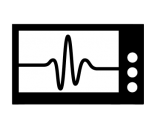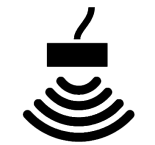Automated Inspection Systems
Olympus designs and delivers automated inspection systems that meet the most challenging needs.
Our systems utilize phased array and eddy current array to inspect the full volume and surface of various products and profiles in many manufacturing industries, such as metal, aerospace, transportation, power generation, and oil & gas.
We introduced inspection systems with ultrasonic phased array technology in the early 2000s and have since delivered more than 100 systems worldwide.
Benefits of Olympus automated inspection systems:
- All fields of expertise coordinated under the same roof
- Exceptional quality from a recognized brand
- Durable, scalable, and reliable solutions
- Ease of operation with minimum operator skill dependency
- High throughput

Committed to bringing innovative solutions to every customer.
Our global sales force collaborates daily with potential customers and our experts to ensure that the requirements of the systems are carefully defined prior to agreeing on contractual terms.
The team designs, manufactures, and integrates all the necessary components in a dedicated project structure to build turnkey inspection systems that meet stringent requirements. With a dedicated integration hall and team of engineers, we have the resources to make sure each customer is satisfied throughout the entire process.
Typical projects include a kick-off meeting, design reviews, factory acceptance tests, installation site acceptance tests, training, and production startup. Once finalized, the project is transferred to our global service network for support during the system’s lifetime.
Turnkey System Essentials
Project Management
Olympus has the experience, knowledge, and resources in project management to ensure your solution is delivered on time and meets or exceeds the expected specifications and performances. Our dedicated project team coordinates all steps of the project in collaboration with the customer, from planning and definition to on-site integration and production start-up.
Inspection Method
Olympus nondestructive testing (NDT) experts design all solution components and implement ultrasonic and eddy current approaches that are optimized for inspection of the part. This includes probe definition, modeling, and scan plan creation. Olympus demonstrates the NDT performance of every automated inspection system, both before and after delivery.
Electronics
Olympus instruments are designed for industrial applications and easy integration. They are built, tested, and validated according to the highest quality standards and compliant with relevant international standards (such as IP55, ISO, ASTM). Dedicated system instrumentation helps ensure high productivity and scalability, enabling different inspection modes to be used for a wide range of applications.
Mechanical
Olympus’ mechanical platform is developed to support the inspection method, providing optimized detectability, repeatability, and stability over its lifetime. Various mechanical platforms have been developed, including gantry bridge, pass-through, immersion tank, and robotic. The chosen platform is adapted to the specific applications and environmental conditions.
Automated Systems Portfolio

Bar Inspection Solutions
Bar inspection system using ultrasonic phased array, eddy current array, and X-ray fluorescence spectroscopy technologies.

Tube Inspection Solutions
Seamless and welded tube inspection system using ultrasonic phased array and X-ray fluorescence spectroscopy technologies.

Wheel Inspection Solutions
The Wheel Inspection System’s phased array probes inspect the rim, from the tread and one face, in addition to the hub from both sides in less than one minute.

Systems Instrumentation
Olympus industrial instruments include high-performance acquisition units that are used in our integrated inspection systems as well as by third-party integrators all over the world.

Friction Stir Weld (FSW) Solutions
The friction stir weld (FSW) inspection system incorporates unique robotics and ultrasonic phased array technology to reliably detect FSW defects at multiple orientations.










